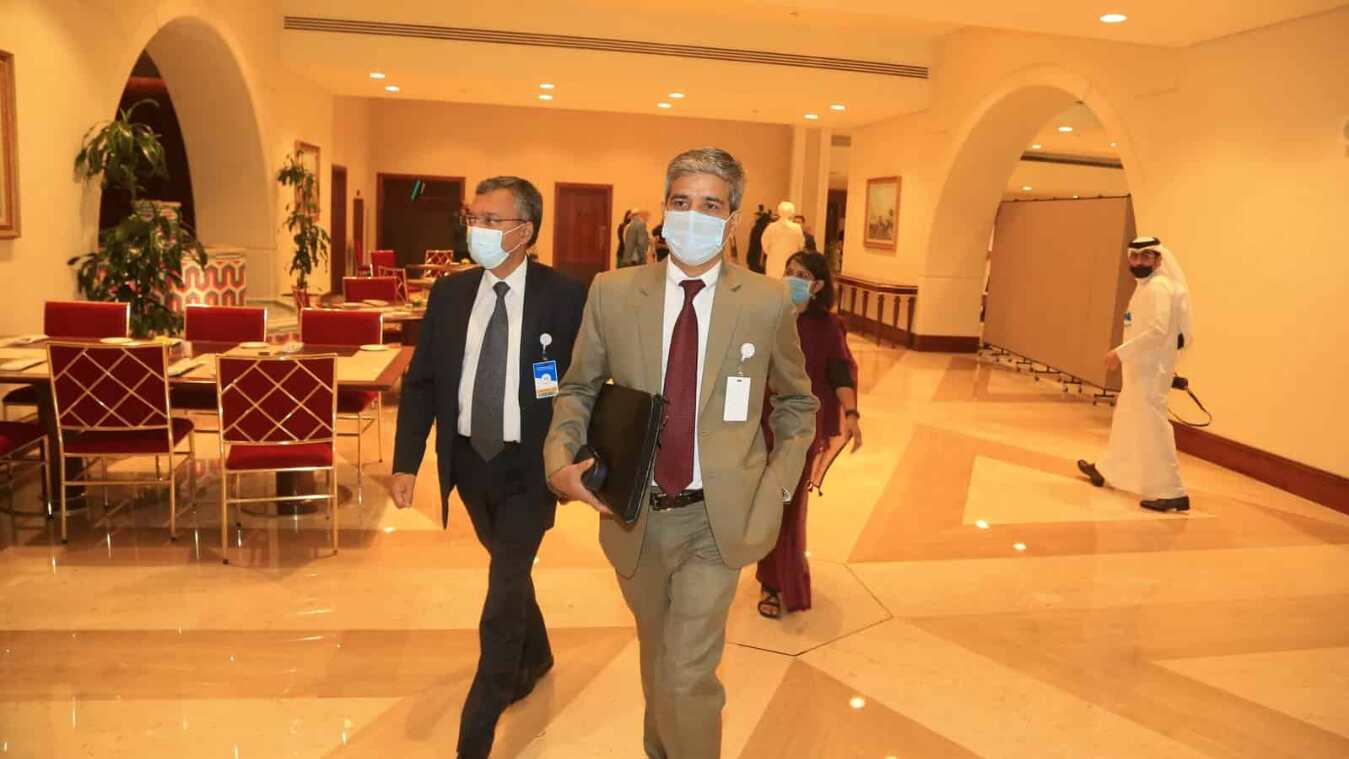Decide and act

The Ministry of External Affairs acknowledged the meeting of Deepak Mittal — Indian Ambassador to Qatar — with the Taliban leader Sher Mohammad Abbas Stanikzai to discuss the "safety, security and early return of Indian nationals stranded in Afghanistan" among other things. This appears to be a shift from India's 'wait and watch' policy, and rightly so. The policy has got its own set of limitations. There must be significant enough aspects to wait for and watch for. As the last of remaining US troops withdrew from Afghanistan, the future of Afghanistan under the Taliban was almost rubber stamped. If India is waiting for and watching for some miracle to happen in the form of regime change at this juncture, it is very unlikely. External forces have completely surrendered their arms and internal power centres do not have the backing of mass mobilisation within the country to overthrow the Taliban. Given Afghanistan's central position geographically and strategically, and its resource base, it is highly unlikely that major nations of the world will abstain themselves from establishing at least a functional relation with Taliban-led Afghanistan. Internally, there may be fear and resentment against the Taliban among people but the sentiment of uprising, which is so vital for delegitimizing authoritarian regimes, has not yet ripened. The wounds are fresh and healing is a faraway destination. Over the past two decades, the Taliban have amassed everything except legitimacy — from weaponry and finances to authority and control. Now it is directing all its wits and resources towards gaining legitimacy. If India is waiting and watching for the Taliban's approach towards governance and human rights, it is a very respectable position the country is taking. But to shape the Taliban's way of governance even in the slightest manner, and ensure human rights compliance in the country, India will have to be a stakeholder to the situation. It will have to engage with the Taliban in a positive and firm manner. The Taliban's quest for legitimacy underscores the character of the interconnected world we are living in. How the Taliban will administer our neighbouring country will have to be shaped through applying tension from various fronts. Countries that are perceived to have contrary viewpoints on certain matters when compared to ours, are desperately making their point in Afghanistan. Perhaps not with the same desperation, but rather with its characteristic calm, India too should deliberate and act. The situation today is quite different from what used to be in the late 1990s. The Taliban going out of control is contrary to today's world order. All countries, including India, will have to ensure that the Taliban have to evolve positively to sustain themselves in this order. India's dilemma is understandable as it has historically abstained from providing legitimacy to the Taliban and had an appreciable degree of rapport with Ashraf Ghani government. Our apprehension also comes from the fact that one of the Taliban affiliates — the Haqqani group — was responsible for killing 75 people in 2008-09 attacks on the Indian Embassy. But turning a blind eye towards reality may not be helpful at this point in time. India's wait and watch policy might have lived its age. It is now time to decide and act in the interest of the nation. Inaction and procrastination may lead to unfavourable ambiguities. The time demands clarity and India must act to reflect the same. It is good that the Taliban have themselves shown willingness to initiate talks with India. Deepak Mittal reportedly raised the issue of the potential misuse of Afghan soil for propagating terror in India, to which the Taliban is said to have assured that India's concerns will be addressed positively. These arguments are in no way to downplay the barbarity of the Taliban and their authoritative nature. The key is to assess in what manner their barbarity can be addressed more skilfully — through waiting and watching or through decisive action. The time indeed offers a dilemma for India to balance its national interests with dignity in a way that secures both. India's rich diplomatic experience and finesse will certainly pave the way towards a desirable end.



